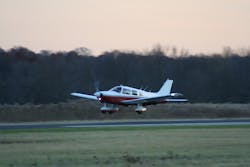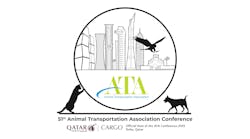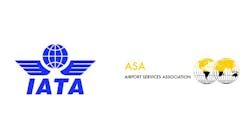NBAA: Congress Must Retain Authority Over Taxes, Access for General Aviation
Washington, DC, May 19, 2015 – National Business Aviation Association (NBAA) President and CEO Ed Bolen today urged congressional lawmakers not to abdicate their constitutional responsibility over aviation taxes and fees, as well as decisions about access to airports and airspace, as part of reauthorization of the Federal Aviation Administration (FAA).
Bolen provided his comments in testimony before a Senate Committee on Commerce, Science & Transportation hearing focused on FAA reauthorization and air traffic control modernization.
The hearing took place as Congress prepares new FAA reauthorization legislation. The legislation will determine the FAA’s funding and priorities in the coming years, including work to continue to evolve the nation’s aviation traffic system to a Next Generation, or “NextGen” system. The agency’s current authorizing legislation, passed by Congress and signed into law in 2012, is set to expire in September.
Bolen’s concerns about preserving congressional oversight for taxes, fees, airports and airspace have been prompted by some recent proposals that have been discussed as part of the FAA reauthorization debate, which would eliminate congressional authority over aviation system funding and governance.
For Bolen, the ability of Congress to retain control over aviation policy is essential to ensuring that the best interest of the public – including the citizens, companies and communities that rely on general aviation for business, and other reasons – is served. To illustrate that point, Bolen described four NBAA Member Companies, from four corners of the country, which are based in small communities that rely on a robust system of general aviation airports.
“Eighty-five percent of NBAA’s Members are small and mid-size companies, most of which are located in secondary and rural communities,” Bolen told committee lawmakers. “Most of their aircraft begin or end their flights at airports with no scheduled airline service. These companies can remain in their communities because of their ability to access airports and airspace, reliably and at a reasonable cost.”
Congressional oversight of the aviation system helps ensure that these and other concerns are understood and incorporated into aviation system decision-making in the public interest – a framework that best serves all Americans, and one that needs to remain in place.
“It is critical that Congress keep in mind that the airspace above our heads belongs to the American public, and it should be operated for the public’s benefit,” Bolen told committee lawmakers. “So, the question on the table – perhaps the fundamental question in this reauthorization debate – is who is going to ensure that our public airspace is operated for the public’s benefit? Will it be the public’s elected representatives, or will it be some combination of self-interested parties?
“The authority over taxes and access to airspace and airports belongs to Congress under the Constitution, and it is an authority that cannot be delegated,” Bolen continued. “Communities of all sizes, in every corner of the country, are depending on you to retain your oversight authority in the areas of taxes and access, to ensure that the public airspace benefits the public.”
As part of his testimony, Bolen told committee members that NBAA has identified a set of nine guiding principles for congressional action during FAA reauthorization, including the following:
- Make NextGen a reality.
- Keep congressional control over taxes, fees and charges.
- Say no to user fees for general aviation, and retain the fuel tax instead.
- Ensure predictable, affordable access to airspace and airports for all users large and small.
- Protect the privacy of those in flight.
- Protect the nation’s federal system of airports.
- Improve the certification and approval process for aircraft and avionics.
- Ensure that new aviation technologies are safely introduced and integrated into the nation’s aviation system.
- Ensure the continuity of government aviation services.


